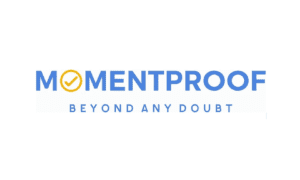Have you ever thought, about why is it so hard to invest in real estate? Why do you almost always need a middleman to conclude real estate deals? Isn’t there an easier way to just choose and purchase the type of land you want? If you ever questioned these, you are not alone.
Thousands of years ago, when we were living in caves, our primary struggle was survival against the horrors of nature, such as natural disasters, dangerous animals, unforgiving weather… Those days are long gone as we prevailed over them with the power of our intelligence. We created shelters and homes with innovations to evade or eliminate those obstacles once and for all with the purpose of living in security.
Now in the modern world, with our reaching the Information Age, we are pursuing more sophisticated objectives in terms of security and reliability. Some of those aims are decentralization, establishing equality, simplicity, and practicality. Even though our goals have changed, the means to reach them are still the same, which are innovation and adaptability.
But what is the way to adapt to the future in terms of real estate? How can you achieve these goals in a long-term way as an innovative investor? We have a couple of ideas.
1. Decentralized Autonomous Organizations (DAOs)
DAOs are communities that are founded by individuals with mutual interests who have no leader, no CEO, or no chairman-like person that is holding the ropes and making the calls. To make the definition clearer, imagine a company, where you can state and pitch your ideas to other members with total freedom, regardless of your position and a final decision is made by voting by all other members.
Aside from that, in terms of business, when you make a purchase or any kind of transaction, you don’t even need any bank or deeds or a third-party foundation to see the process through!
With DAOs, everyone who holds a stake -in other words, a token- in the business, and everyone who is a part of the community has an equal say. Your gender, race, or sexual preference doesn’t matter even a little bit. It is the implementation of true democracy, and as it uses blockchain technology and a secure digital ledger, it is almost impossible to compromise.
There are many types of DAOs that focus on different industries and enterprises. For example, Uniswap is a decentralized crypto exchange hub with thousands of marketable crypto tokens. Aragon DAO which is providing infrastructure to other platforms to establish their DAOs. There is even Constitution DAO, formed with the aim of purchasing an original copy of the Constitution of the United States!
When it comes to real estate, GolfDAO came up with an incredible project that aims to purchase an actual golf course on the West Coast of the USA by selling NFT. The maintenance of the golf course, LLC structure, and legal affairs, all will be professionally dealt with, and the management will be carried out by voting in which each NFT will grant the member 1 vote in the decision-making process.
The comfort in the simplicity of investing, having assets, and owning a property with a click or swipe of your finger, solely using NFTs or bitcoin surely is a promising gift from real estate blockchain technology.
2. Tokenizing Real Estate
If you are familiar with the mesmerizing world of crypto, -if not you’ll eventually be sooner or later- you might have seen trendy words such as “Tokenizing” or “Tokenization”. You could be saying “All right! Tokenization! What the hell is that?”
Tokenization is the action that splits the ownership of an asset or property (such as real estate) into digital tokens stored in the blockchain. This value conversion process enables the digital ownership and transaction of the asset. Within the real estate, each of these tokens contains a part of the ownership (just like a deed).
Advantages of Tokenizing Real Estate
1. Easier to invest in even with minimum capital
The division of the asset into tokens provides investment opportunities to minor investors. Everyone can have a stake in the real estate business and with a smart step, a high return on investment can surely be a reality.
2.No more stacks of paperwork and dealing with middlemen
When you purchase real estate, there is a whole, backbiting process of paperwork and agent management to deal with, for the purpose of being certain that everything is secure and crystal clear. It is revolutionary that with the tokenization technology, you make all the paperwork process and middlemen negotiations redundant because within the blockchain the transactions between you and the other party are authenticated and secure without the need for any third-party examination.
3. Getting rid of high transaction fees
According to Sullivan(1991) “Representative transaction costs, including both readily observable and hidden costs, may range from 6% to 10% of a property’s sale price. These transaction costs include search costs, brokers’ fees, transaction taxes, mortgage brokers’ fees, attorneys’ fees, real estate stamps, title taxes, and recording fees.” Sounds bad, isn’t it? Blockchain technology saves us from all these extra costs and most importantly, it saves us time, as time is the currency of life.
So the benefits of tokenization not only save us from all of these headaches, it also pushes our minds to evaluate things differently, and more accurately.
In conclusion, the greatest instruments that we can rely upon as humankind, are our intelligence and adaptability within the theater of life. Since its existence, the market of real estate is in a state of constant change and we have learned that we must adapt and go with the flow of change to reach our goals.
The DAOs and Tokenization are rising as the two pillars of the future of real estate investments and we are witnessing this with our very own eyes.
In accordance with these, there are two roads in front of us. We can either keep rotating in our comfort zone and waste our time and money with the relics of the past, or we can adapt and embrace the future to become a part of this new revolution.
For more information and regular updates, visit the official
References
- Michael J. Sullivan, Steven M. Cassidy, Charles M. Ermer. “A Note on the Effect of Transactions Costs on Real Estate Investment Return”, 1999 pp. 115
- https://www.researchgate.net/publication/5142396_A_Note_on_the_Effect_of_Transactions_Costs_on_Real_Estate_Investment_Return



































